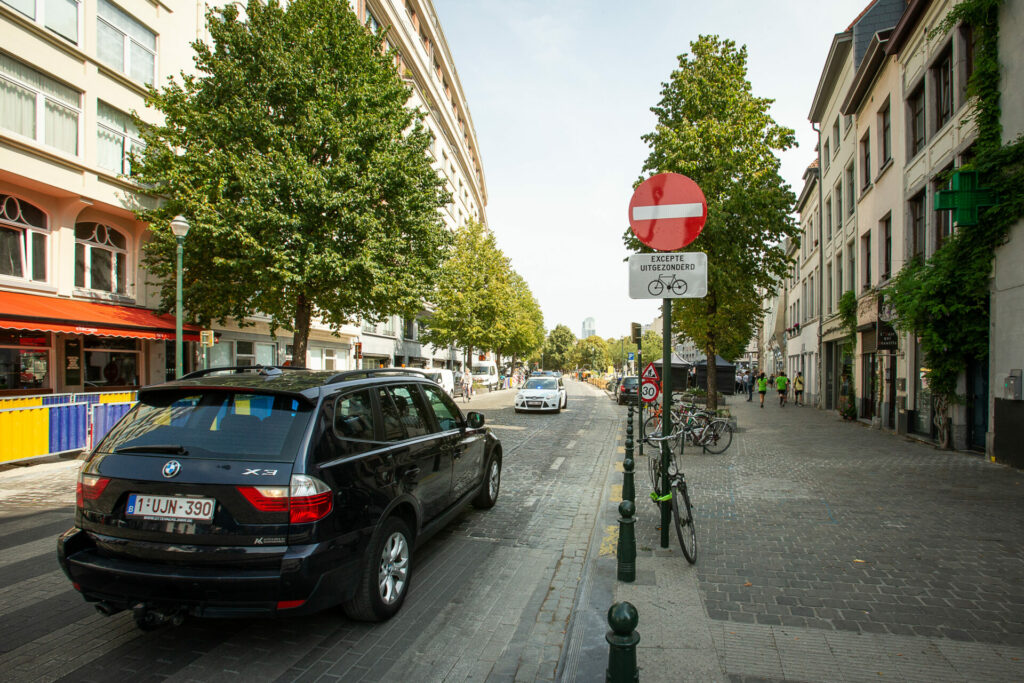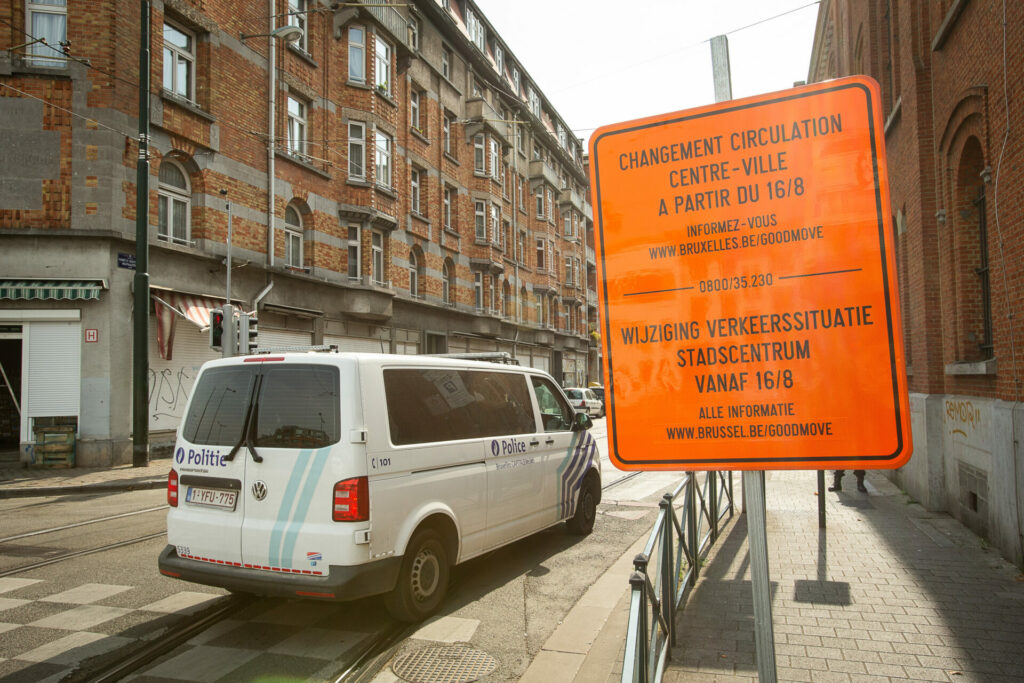A recent survey by the Neutral Union for the Self-Employed (SNI) – titled 'The Good Move Plan? A disaster for Brussels' self-employed and SMEs' – was not carried out in a sufficiently transparent way to draw such a conclusion.
The 'Good Move' traffic circulation plan aiming to improve the living environment of the people of the Brussels-Capital Region, implemented in mid-August 2022, has received a lot of criticism from the start. Recently, a survey by the SNI concluded that "two-thirds of Brussels' self-employed workers and SMEs are considering leaving Brussels" because of the plan's consequences on their turnover.
Following its publication, opponents have used these figures to prove the negative effects of the traffic flow and Brussels' long-term economic activity. While the survey was eagerly shared by critics and politicians alike, an investigation by RTBF shows that the study's methodology was not right.
The author of the survey, the Syndicat Neutre des Indépendants (SNI), is a trade union organisation which has been representing the interests of more than 42,000 Belgian entrepreneurs, for more than 50 years, according to their data. In the Brussels-Capital Region, the union has 1,133 members, including 147 in the municipality of Brussels, according to its spokesperson Olivier Maüen.
Too-small, non-random sample
The questionnaires for this survey were sent by e-mail in two parts: first to the 147 members of Brussels-City, and then to the members of the 18 other municipalities in the region. Maüen said that 150 responses were received for the whole region and 23 responses for the Brussels municipality alone.
According to a ULB researcher who spoke to RTBF but remains anonymous, the results of the survey are not reliable enough to be considered as a reflection of the reality of Brussels SMEs and self-employed, due to several methodological biases.
The first methodological element to be observed in this survey is the too-small sample size: the sample must be large enough to reliably represent the total population, but in this case, it only concerns 150 SMEs and self-employed who are members of the SNI.
The "total population" here is all the SMEs and self-employed in Brussels-Capital Region: 112,841 SMEs on 31 December 2020, according to the latest data from the FPS Economy, and 121,785 self-employed people and helpers in the 4th quarter of 2021, according to the National Institute for Social Insurance for the Self-Employed.
Related News
- Reversing Good Move traffic plan in Cureghem will take 'up to two months'
- Two in three traders want to leave Brussels due to 'Good Move' plan, survey shows
- Woluwe-Saint-Lambert not sold on Brussels 'Good Move' traffic plan
"It is clearly wrong to draw conclusions about all SMEs and the self-employed from such a small, non-random sample," the ULB researcher said. "Nothing tells us that the 150 respondents are representative of the 1,133 SMEs and self-employed members of this union, and a fortiori of all the SMEs and self-employed in Brussels. Additionally, it is not clear whether non-response introduces a bias in the survey results."
Additionally, 18.75% of the respondents indicated that they were active in the non-food retail sector and 15.63% in the hospitality sector, the majority (25%) answered "other sector" – leaving some doubt as to the precise characteristics of the respondents. SNI spokesperson Maüen also indicated that no differentiation of responses between SMEs and self-employed was made because "this was not relevant to the survey."
While the SNI union "is not linked to any political party or opinion or to any specific sector," no list of SNI members is freely available, meaning it is unclear whether the union's members are representative of all Brussels' self-employed and SMEs.
"It is not so much the size of the sample that poses a problem here, but the procedure for obtaining the responses, which is neither random nor carried out in the entire target population," the ULB researcher concluded.

Credit: Belga
On top of that, the communication of the results is also misleading. Among the answers to the questionnaire that RTBF was able to obtain, 62.50% of respondents answered yes to the question "Have you ever thought of moving your establishment/activity?" When asked if they were really going to do it, 30% of respondents answered that they would not – meaning that almost 19 out of the 94 respondents who said they had "already thought about moving" would not do so in the end.
As to whether the Good Move plan really has negative economic impacts, the Brussels Mobility press officer in charge of the plan's deployment stated that "the measures put in place as part of the traffic plans have very little impact on the number of parking spaces" and that "traffic conditions at the moment are more or less the same as they were last autumn."
Brussels Mobility spokesperson Inge Paemen added that "Brussels Mobility has already carried out surveys on the modes of transport used by customers in four shopping districts in the Region. The retailers were also asked about their estimate of the modes of travel used by their customers. The retailers systematically overestimated the use of the car by their customers."
Paemen added that she regrets the survey did not consider other factors that could have had a negative impact on the health of the region's economic actors, such as "the Covid crisis, rising energy costs or inflation."

